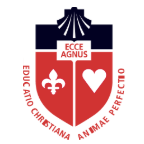Introduction
Tobin College of Business-Rome, St. John's University is a well-known business school under St. John's University in the United States. It provides students with global business education and practical opportunities, and is committed to cultivating business leaders with social responsibility and international vision.
Overview
Student size: The college has a total of about 2,600 students, including 2,000 undergraduates and 600 graduate students.
Faculty: There are 100 full-time teachers and 50 part-time teachers. The teachers not only have rich teaching experience, but also have deep professional background and practical experience, and can provide students with high-quality education and professional guidance.
History
St. John's University was founded in 1870 by the Vincentian Order of the Roman Catholic Church in response to the invitation of John Loughlin, the first bishop of Brooklyn. Its original intention was to provide intellectual and moral education for poor young people in the city. It was originally named St. John's Road College. In 1933, it was established. It became a comprehensive university in 1999, and the Peter Tobin School of Business is one of its important components. It has continued to grow and develop over time, and has cultivated a large number of outstanding business talents for the society.
Establishment time
As a part of St. John's University, its history can be traced back to 1870, but there is no clear independent record of the specific establishment time of the Peter Tobin School of Business. It was gradually formed and developed in the process of the continuous development and discipline construction of St. John's University.
School strength
Teaching resources: The college has obtained AACSB International certification, which is one of the most authoritative business school certifications in the world, represents that its teaching quality and academic level have been internationally recognized. With the help of St. John's University's global alumni network, it provides students with abundant internship and employment opportunities. The alumni network covers elite talents in various industries and can provide valuable career guidance and recommendations for students.
Academic research: Teachers actively carry out various academic research activities, have achieved remarkable results in many directions in the business field, and integrate research results into teaching, so that students can be exposed to the latest business theories and practical dynamics. The college also frequently holds various academic lectures, seminars and other activities, inviting industry experts and well-known scholars to share cutting-edge knowledge and practical experience with students.
Nature of the institution
A business school under a private Catholic university.
Educational philosophy
Adhering to the service mission of the Catholic Vincentian Society, Inspire future business leaders to pay attention to the needs of today's world and take action, focus on cultivating students' sense of social responsibility and moral values, emphasize the need to balance economic and social benefits in business practice, and strive to cultivate business talents with global vision, innovative spirit and practical ability. Through diversified curriculum settings and practical projects, students can not only master professional knowledge and skills in the learning process, but also cultivate critical thinking, teamwork and leadership.
Key disciplines and departments
Key disciplines: Risk management and insurance majors are ranked in the top three in the United States. In addition, finance, actuarial science, accounting and other majors are also popular majors in the college. These majors have significant advantages in curriculum settings, teaching resource allocation and practical opportunities, and can provide students with a good platform for in-depth learning and professional development.
Department settings: The college has 7 business departments, covering accounting and taxation, computer information systems and decision science, economics and finance, business law, management, marketing, risk management and insurance and other business fields, provide students with a wide range of professional choices and in-depth learning opportunities.
Ranking
The business school of St. John's University ranks high in the United States, and its risk management and insurance major ranks among the top three in the United States. The school as a whole is also competitive among AACSB-certified business schools.
Expenses
Tuition fees: The tuition fees of St. John's University in Rome vary according to different majors and degree courses. Generally speaking, the tuition fees for undergraduate courses are about $40,000 to $50,000 per year, and the tuition fees for graduate courses are about $50,000 to $60,000 per year.
Other expenses: In addition to tuition fees, students also need to pay for accommodation, living expenses, textbooks and other expenses. According to the cost of living in Rome and the accommodation conditions of the school, the accommodation fee is about $10,000 to $20,000 per year, and the living expenses vary from person to person, about $10,000 to $15,000 per year.
Campus Environment
Geographic location: Located in Rome, Italy. As a famous historical and cultural city in Europe, Rome has rich cultural heritage and commercial resources, providing students with a unique learning and living environment. Students can feel the blend of strong historical atmosphere and modern business atmosphere here. At the same time, Rome has a superior geographical location and convenient transportation, which is convenient for students to go to other countries and regions in Europe for exchanges and study.
Campus facilities: The campus architectural style combines modern and traditional elements, and the internal facilities are advanced and complete. It has modern teaching buildings, libraries, laboratories, computer rooms and other teaching facilities, as well as restaurants, dormitories, gymnasiums and other living facilities, providing convenient and comfortable conditions for students' study and life.
-
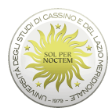
University of Cassino and Southern Lazio
-

University of Campania Luigi Vanvitelli
-
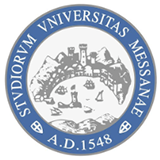
University of Messina
-
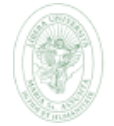
Libera Universita degli Studi Maria SS. Assunta di Roma (LUMSA)
-
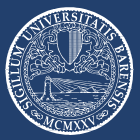
University of Bari Aldo Moro
-
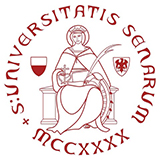
University of Siena
-
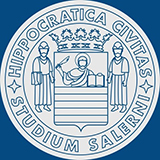
University of Salerno
-
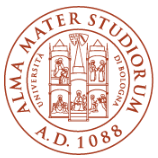
University of Bologna
-
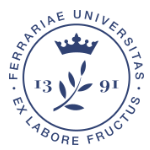
University of Ferrara
-
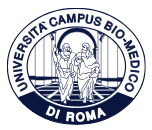
Campus Bio-Medico University of Rome
-

Mesoamerican University
-

Istmo University
-

Mariano Galvez University of Guatemala
-

Regional University of Guatemala
-

Galileo University
-

Francisco Marroquín University
-

Rafael Landívar University
-

University of the Valley of Guatemala
-

University of San Carlos of Guatemala
-

Technological Institute of Tlaxcala Plateau
-

Golfo University
-

Technological University of South Sonora
-

Technological University of Huejotzingo
-

Tizimín Institute of Technology
-

Chilpancingo Institute of Technology

